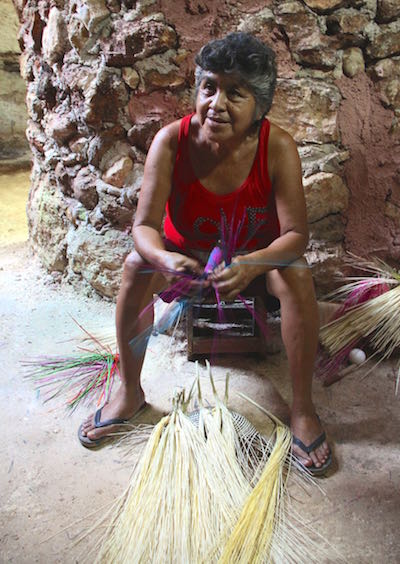Sombreros de Jipi
Travelers can choose to take a tour of the sombreros jipi business, witness a hat weaving demonstration, participate in creating these hats, or simply shop around for the sombrero that suits them.
why It Matters?
Chari learned how to make jipi hats from her parents, and she is undoubtedly an expert when it comes to creating a beautiful sombrero! Two types of palms used for the creation of sombreros de jipi: the palma and the jipijapa. To create hats of various rich colors, other plants and roots are used to serve as the dyes. The practice of creating these hats has been well-preserved for years, and to this day the making of these cultural icons remains the same: the creations take place in humid caves so that the jipi plants don’t dry out in the hot sun.
who Can Sign Up?
Anyone! Do you enjoy learning new skills, getting crafty, and gaining hands-on experience? If so, taking a tour or class with this local sombrero business is right up your alley. Sign up today!
How Do I Sign Up?
Right here! Our friends at SAVE Campeche will make sure your reservation gets to Chari and that you easily find your way to this business in Calkiní.
If you are a SAVE sending organization, inquire with us about how to send passionate travelers on this sombrero-making experience.
More Details, Please!
For many years, the artisanal practice of the people of Becal has been the weaving of sombreros de jipi, frequently compared to the famous Panama hats and made from different types of palm trees. In 1800, two brothers were told about palm plantations and decided to plant jipi shrubs in the Calkiní community. This new plantation eventually led to the making of sombreros as the main activity for locals, providing them with years of prosperity within the hat industry. These hats spread to other regions and states in Mexico and helped boost economies in the community. These hats represent a hard-working community putting in immense effort to create better lives for their families.
-
Partner Spotlight: Maria Rosia

Maria Rosia “Chari” has been making iconic jipi hats for 46 years. Chari and her children work together to create these beautiful and functional pieces for consumers, and they offer free classes to other artisans in the community who don’t have a place to make or sell their products.



